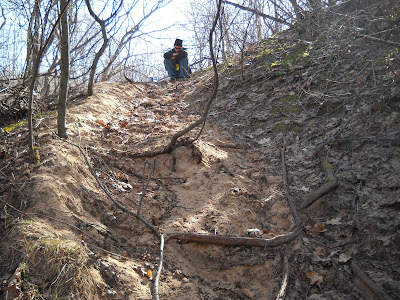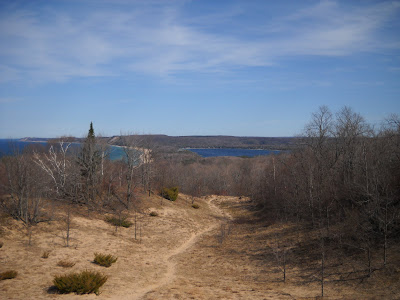
Having grown up in Arlington Heights, I know it's a great place to live. It's come a long way since I was a kid when the downtown was anything but a place to shop, dine, or hang out. Yes, there were some restaurants including La Tejanita - now
Javier's (same owner, world's best salsa & reasonable prices, but completely redone restaurant) and Chin's, but there wasn't much else except the train station, churches and banks. The movie theater was shuttered in the late 1970s and shops came and went, and for years, it felt more like a ghost town than a living, breathing, thriving town where people came together. The schools were always great, as were the parks, pools, the Arlington Heights Memorial Library and the Fourth of July festival known as
Frontier Days, but the downtown business district was struggling.
In the past 15 years or so though, Arlington Heights has invested a great deal of money into building a thriving downtown area and making it a true destination. In fact, one of the things I love about Arlington Heights is that I don't have to go somewhere else to have fun on the weekend or to do business. There are a ton of restaurants, bars, movie theaters, and even a live theater that puts on very reasonably priced great plays. There are a number of events throughout the year that bring residents together. Frontier Days is better than ever and the creation of National Night Out, the Mane Event, movie night in the downtown business district, outdoor concerts, the Farmer's Market and many more events, summer in Arlington Heights is second to none. Because such a variety of businesses have come to Arlington Heights in the last two decades, it's very rare that I need to shop outside the Village for anything.
Do I agree with everything that's happened in Arlington Heights in the last 15 years? No, of course not. You can't please everyone all the time. For example, I'm not a fan of the more affordable homes that have been torn down to make way for over-sized McMansions on lots the size of matchbooks. Fortunately, the change in the real estate market seems to have slowed this significantly.
Overall though, Arlington Heights is wonderful. Our leaders clearly care about the town and have a vision for the future. Lots of people love Arlington Heights, including many who haven't lived here in years. In fact, there's a great Facebook page called "
Growing Up in Arlington Heights" created by a
former resident who now lives in California. It's got over 6,000 fans and has a very active discussion board.
And now the Tribune knows how great our town is too.
Arlington Heights earns high marks for schools, homes, locationA thriving suburb with a neighborly feel
by Jeffrey Steele, Chicago Tribune, April 2, 2010
It was the dawn of the new millennium, and Katherine Mikkelson and her husband, Tom, were relocating to the Midwest from the East Coast. With just one weekend to find a house, the couple decided Chicago's North Shore was out of their range,and began hunting for a home in the northwest suburbs.
"We kind of stumbled on this house," she recalled of finding her 1865-era home in the heart of
Arlington Heights. "It was kind of fortuitous."
In the decade since, she's stayed in touch with the woman who sold the house, and come to know everyone on her block. Her sons went to preschool around the corner and learned to swim at Rec Park. And Mikkelson has grown to feel there was no better patch to have landed on that long-ago weekend.
"Go anywhere in Arlington Heights and you meet someone who you know," she said. "It's much more stable here. I wouldn't move back to the East Coast after living here for so long."
Mikkelson is by no means atypical. Whether native-born or from some far-flung region, most Arlington Heights residents say the village's family-friendly melding of top-ranked schools, an outstanding park district, convenient access to Chicago and revived downtown represent an appealing mix.
Amy Philpott is another transplant, from the West Coast, who found what she sought in Arlington Heights. "We're big in population, but we're a village," said Philpott, owner of
Tuscan Market & Wine Shop, serving up wines and homemade Italian sandwiches. "Go to Jewel and everyone's talking to each other. It's not faceless. It's ‘what's up with the kids?' "
Arlington Heights is an affluent, established suburb 25 miles northwest of downtown Chicago. Given the size and economic strength of the village, Arlington Heights has managed to preserve its small-town feel. The suburb has about 77,000 residents, and is home to 48,000 jobs, says village manager Bill Dixon. Its residential base is comprised of 18,000 single-family homes and another 12,000 multifamily dwellings.
"If you picked it up and put it in the middle of Iowa, it would be self-sustaining," Dixon said. "It was once a bedroom suburb of Chicago, but it is no longer. It has a distinct identity, attributable to
Northwest Community Hospital,
Arlington Park Racetrack, and a renewed and vibrant downtown district that includes the
Metropolis Performing Arts Centre."
The downtown area underwent a metamorphosis in the 1990s. The revitalization was somewhat controversial at the outset, with many wondering how the village would accommodate the additional traffic flowing into a compact area hosting the new Metropolis and new Arlington Towne Square with its six-screen multiplex, along with existing restaurants and shops. Three parking garages, as well as another parking amenity beneath Arlington Towne Square, have helped ease any parking issues, Dixon said.
Transit-oriented residential development has helped alleviate traffic congestion. The village ensured a stock of new condominiums and apartments would be close to the Metra station, so both young adults and empty nesters could live downtown.
"I think Arlington Heights was . . . a little ahead of the curve in transit-oriented development," Dixon said. "This was being reviewed and approved in Arlington Heights before it was commonly accepted around the country. There were those who thought it would not be compatible with the Arlington Heights they knew. But it's certainly been a shot in the arm for downtown Arlington Heights and the entire community."
The downtown district sets the tone for the rest of what is an exceptionally pedestrian-friendly village. "What I love is I can walk to everything," Mikkelson said. "I can walk to the train station, walk to the restaurants. I can walk to shopping and walk to my kids' school. That's not so common in the suburbs."
The pedestrian streetscape is so pronounced that Philpott and others are organizing a Car-Free Sunday in June. "The downtown streets will be closed to cars for a few hours, to show off the bicycle- and foot-friendliness," she said.
For more than a century, one of the village's prized touchstones has been
Arlington Heights Memorial Library, which has occupied its current 500 N. Dunton Ave. building since 1968. The library is visited by 2,600 people a day, many of whom helped contribute to the record 2.4 million checkouts of books, CDs, DVDs, magazines, games and toys the library has tallied the past two years, said spokeswoman Deb Whisler. That record was part of the reason Library Journal's Index of Public Library Service awarded the library its five-star rating, bestowed upon just 1 percent of all libraries.
Noting "this is a community that really values its library," Whisler added that the library greatly benefits from its location in the downtown district. "People get off the train and visit for audio books or music to use on their commutes." Kids can reserve items online and have the library's bookmobile, serving 26 village stops, deliver to their neighborhoods.
It's not only the downtown and the library, but also the good schools, park district and housing stock, that help sell his prospects on Arlington Heights, said David Jaffe, Realtor at Coldwell Banker Northwest in Arlington Heights.
Residential home styles include vintage Queen Annes, American Four Squares, Arts and Crafts homes and bungalows, said Jaffe, himself a 16-year resident of Arlington Heights.
"A lot of the homes were built in the early part of the 20th century," he said. "But the expansion really took place after 1950, when you had the building of Georgians, Cape Cods, split-levels and ranches."
Lower-end homes start in the $200,000s, he added. At the higher end, new construction homes can command multimillion-dollar pricetags. Condos, many of which are downtown, range from $275,000 to $800,000, he said.
Arlington Heights isn't without challenges. Comparatively high housing costs and taxes have priced out some of its traditional mid-income residents, and the pricey rents downtown have resulted in several shuttered storefronts.
Like many other suburbs struggling with budget cuts, Arlington Heights is seeking to minimize the effect on local school districts.
Dixon said, "We have a number of school districts in Arlington Heights, and to the credit of all concerned, the challenges have been faced in a cooperative and collaborative fashion, so the effect has been minimized."
Still, Mikkelson and other locals aren't second-guessing their decision to settle in Arlington Heights. "Come to a show at the Metropolis, have a bite to eat at
Peggy Kinnane's," she said. "You will see what a lovely community it is."

















